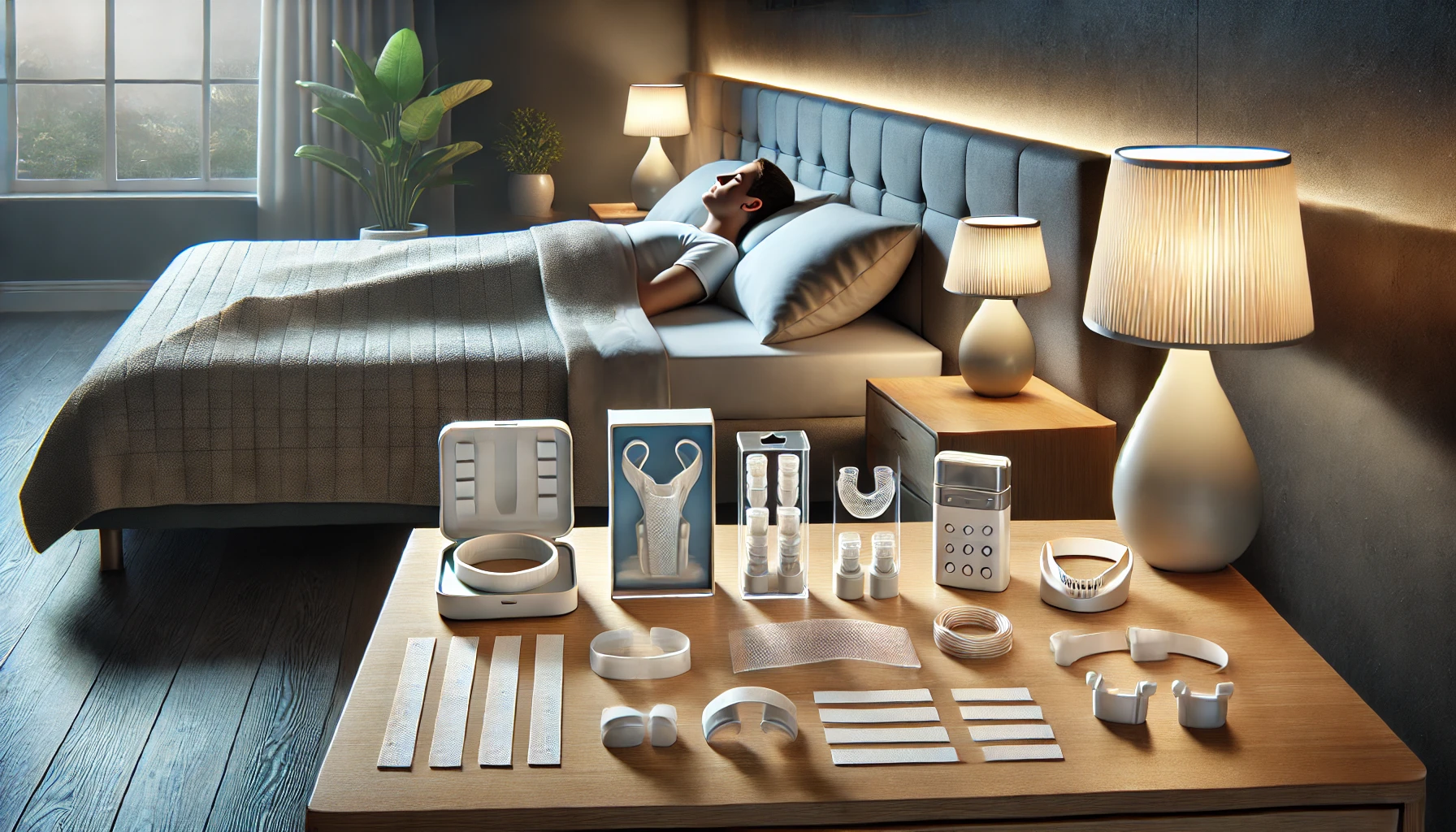Health News
anti-snoring devices, anti-snoring pillow, best anti-snoring device, chin strap snoring, mandibular advancement device, nasal strips, sleep apnea prevention, snoring aids, snoring mouth guard, snoring mouthpiece, snoring prevention, snoring solution, snoring solutions, snoring treatment, tongue retaining device
Best Anti-Snoring Devices for a Peaceful Night’s Sleep: Effective Solutions to Help You Rest
Snoring can significantly disrupt the quality of sleep, affecting not only the person snoring but also their partner. If you’ve been dealing with sleepless nights due to persistent snoring, it’s time to explore the range of anti-snoring devices designed to alleviate this issue. These devices work by addressing the underlying causes of snoring, helping you achieve a more restful and uninterrupted sleep.
Snoring occurs when the flow of air through the mouth and nose is partially obstructed during sleep. This can be triggered by factors like nasal congestion, obesity, alcohol consumption, or even the shape of your mouth and airway. While occasional snoring might not be harmful, chronic snoring can be a sign of a more severe condition known as obstructive sleep apnea (OSA).
Understanding the Causes of Snoring
The main reason people snore is due to the relaxation of muscles in the throat, which causes the airway to narrow. As air passes through, it creates vibrations in the soft tissue, which produces the sound of snoring. Snoring can be worsened by several factors:
- Sleeping position: Lying on your back can cause the tongue to fall back into the throat, obstructing the airway.
- Obesity: Excess weight, particularly around the neck, can increase pressure on the airway.
- Allergies or nasal congestion: Blocked airways make it more difficult for air to pass through, leading to snoring.
- Alcohol or sedatives: These substances relax the muscles in the throat, making snoring more likely.
In some cases, snoring may be a symptom of OSA, a serious condition where the airway becomes completely blocked during sleep, causing frequent waking and a decrease in oxygen levels.
The Role of Anti-Snoring Devices
Anti-snoring devices work by keeping the airway open or adjusting the positioning of your mouth and throat to reduce the vibrations that cause snoring. These devices come in a variety of forms, from nasal strips and mouthpieces to specialized pillows and chin straps. Some of the most effective anti-snoring devices address different aspects of snoring, making them suitable for a range of causes.
Before diving into the best devices, it’s important to determine whether an anti-snoring device is the right solution for you. If your snoring is mild and not associated with other symptoms, using one of these devices can improve the quality of sleep for both you and your partner. However, if your snoring is accompanied by gasping for air, choking, or daytime sleepiness, it may be a sign of OSA, and you should seek medical advice.
Key Features to Consider When Choosing an Anti-Snoring Device
When selecting an anti-snoring device, there are several important factors to consider to ensure you choose the right product for your needs:
- Comfort: Since you’ll be wearing the device throughout the night, comfort is crucial. Look for devices made from soft, non-irritating materials that are safe for long-term use on your skin or in your mouth.
- Effectiveness: Research reviews to gauge how effective the device is at reducing or eliminating snoring. Many anti-snoring devices are reviewed for their performance, and it’s important to choose one that fits your specific snoring cause.
- Fit: Some devices, like mouthpieces and nasal dilators, need to fit properly to be effective. Ensure you choose a device that offers a customizable fit, or comes in different sizes.
- Ease of Use: Consider how easy it is to clean and maintain the device. Some products require regular cleaning or replacement parts, so it’s important to factor this into your decision.
- Price: There are a wide variety of anti-snoring devices available at different price points. While some premium models may offer advanced features, affordable options can also provide excellent results.
Top 5 Anti-Snoring Devices to Consider
- Nasal Strips
Nasal strips work by opening up the nasal passages to allow more airflow, reducing nasal congestion and preventing snoring caused by blocked airways. They are simple to use and ideal for people who snore due to nasal issues. - Mouthpieces
Mandibular advancement devices (MADs) or mouthpieces hold the jaw in a forward position, preventing the airway from becoming obstructed. These devices are effective for people whose snoring is caused by throat vibration or tongue collapse. - Chin Straps
Chin straps work by supporting the jaw and keeping the mouth closed during sleep, which can be helpful for people who tend to snore with an open mouth. The strap helps maintain an open airway by promoting nasal breathing. - Specialized Pillows
Anti-snoring pillows are designed to position the head and neck in such a way that the airway remains open throughout the night. These pillows provide comfortable support and are a non-invasive solution for people who want to avoid wearing a device. - Tongue Retainers
Tongue retaining devices (TRDs) hold the tongue in place to prevent it from falling back into the throat and causing snoring. These are a good option for people who snore due to their tongue position during sleep.
Tips for Using Anti-Snoring Devices Effectively
While anti-snoring devices can help alleviate snoring, it’s important to use them correctly for the best results. Here are a few tips to keep in mind:
- Start with a comfortable option: If you’re new to using snoring devices, begin with a comfortable, non-invasive option like nasal strips or a specialized pillow.
- Give it time: It may take a few nights to get used to wearing the device, so be patient and allow yourself time to adjust.
- Maintain your device: Follow the manufacturer’s instructions for cleaning and maintaining the device to ensure it continues to work effectively.
- Consider lifestyle changes: In addition to using an anti-snoring device, you can make small lifestyle changes such as losing weight, reducing alcohol intake, or sleeping on your side to further reduce snoring.
Conclusion: Find the Right Anti-Snoring Device for You
Snoring can significantly disrupt your sleep and affect your overall well-being. With the right anti-snoring device, you can enjoy a peaceful night’s rest and wake up feeling refreshed. Whether you prefer a nasal strip, a mouthpiece, or a specialized pillow, there are plenty of options to choose from that cater to your specific snoring issue.
Remember, if your snoring is severe or accompanied by symptoms of sleep apnea, it’s important to consult with a healthcare provider to ensure that you receive the appropriate treatment.



